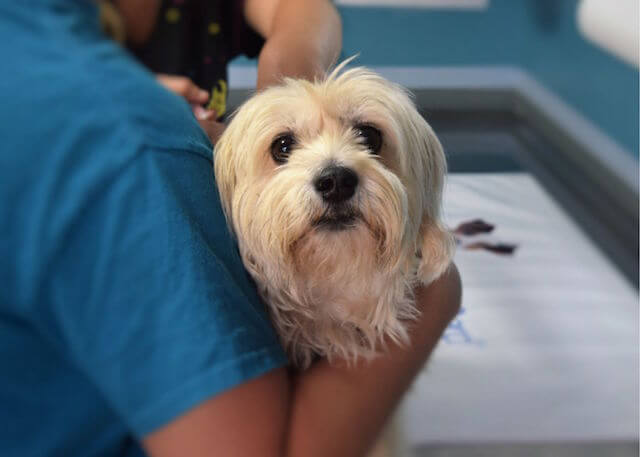Is my Dog Sick? Detecting Dog Health Abnormalities
One of the drawbacks of being a pet owner is that your dog can’t actually talk to you and tell you when he feels bad. You have to rely on watching your dog and knowing how he acts when he’s healthy and how he might act if something is wrong.

Just as humans can have countless diseases and health problem, dogs are also prone to all kinds of health issues, ranging from small problems to things that can signal something is seriously wrong. It’s not always easy to detect every little change in your dog or to know when something is wrong.
Symptoms
There are a number of common signs that often indicate your dog isn’t feeling well. Here are some symptoms that should make you take notice if you see them in your dog:
Vomiting. Vomiting is one of those symptoms that can be harmless or it can be the start of something serious. It is almost a universal symptom. It may simply indicate that your dog ate something which disagreed with him, or it could be an indication of a serious gastrointestinal problem. If your dog vomits one or twice, it is probably nothing to worry about. If he vomits for more than a day, you should take him to see the vet since he could become dehydrated. Your vet can determine if there is a serious cause for the vomiting.
Diarrhea. Like vomiting, diarrhea can be something temporary that your dog will get over on his own, or it may indicate something more serious. If the diarrhea lasts more than a few days or if it contains blood, or it’s black and tarry, or it contains mucous, you need to take your dog to the vet.
Cloudy or bloody urine. Your dog’s urine can be an indicator of his health. If your dog’s urine is cloudy or bloody, it may indicate that he has a kidney or bladder infection. If your dog is urinating too often or not as much as usual, these can be signs that something is wrong.
Water consumption/excessive thirst. If your dog seems to have an excessive thirst or is consuming much more water than usual, it can indicate that your dog has a kidney problem or may have diabetes. But you cannot diagnose these health issues based on your observations. It’s possible your dog is drinking more water because the weather is warm or your dog is active. Watch how much water your dog drinks and see a vet if you are concerned.
Your dog’s nose. You’ve probably heard that your dog’s nose should be wet and cold, and it’s true. A dog with a warm, dry nose may be sick. He may be dehydrated or sick in some other way. And your dog’s nose should not be runny. Do check your dog’s nose from time to time.
Bad breath, teeth, gums. Lots of dogs have bad breath and their owners think that it’s normal for dogs. However, sometimes the cause is dental decay or a bad tooth, which can be painful for dogs, just as it is for people. If your dog has bad breath, check his mouth. Look at his teeth and gums. Many dogs have gum disease, tartar, and plaque. Have your vet check your dog’s teeth and gums at your dog’s annual check-ups.
Lethargy. Lethargy or a lack of energy is often a sign that something is wrong with a dog. You should have a good idea of how much sleep is normal for your dog. Most dogs will sleep more as they get older, but if your dog is acting down and depressed, or showing no energy, he may be ill, especially if he also seems weak or seems to have lost his balance. Some dogs can also show signs of restlessness, which can be another sign of illness.
Ears. Ear infections are very common in dogs but many owners don’t notice there’s a problem until the ears are already infected. Signs of ear problems can include your dog scratching at his ears, redness and inflammation, a discharge, your dog tilting his head, and a bad odor coming from the ear. Untreated ear infections can lead to a loss of hearing. Check your dog’s ears often and clean them once a week.
Appetite. One way to determine if a dog is sick or not is often by watching his eating habits. If your dog suddenly stops eating or loses his appetite, he may be sick, especially if he starts losing weight. On the other hand, if he suddenly starts gaining weight, that can also be a sign that something is wrong.
Breathing and panting. If your dog begins to have to labor to breathe or if he starts panting for no reason, these can be signs that your dog is in distress. These can be signs of several diseases such as heat stroke, heart problems, a respiratory disorder, or even cancer. Coughing can be another indication of a health problem.
Conclusion
Watch for these common signs in your dog and contact your vet if you notice changes in your dog’s behavior. Sometimes very small changes can signal that something is wrong with your dog’s health. Catching a problem early can make the difference in treating many health issues.
Helpful read: Signs that your dog needs emergency treatment.
